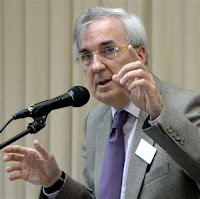The general level of education is high in Norway. According to figures from 2001, 87 percent of all people over the age of 16 have completed primary and lower secondary schooling, 56 percent have completed upper secondary schooling, and 22 percent have completed higher education programmes. 900,000 of Norway's 4.6 million inhabitants are currently undergoing education. The total expenditure education in Norway comprises 6.6 percent of the gross domestic product, compared to an OECD average of 4.9 percent.
Education:
From 1997 onwards children are Norwegian school, during the calendar year in which she reached 6.Compulsory education consists of 10 years and consists of three stages: the Mainstage grades 1-4 (6-10 years); Intermediate grades (10-13 years) and secondary level low grades 8-10 (13-16 years). Secondary education takes three years. It consists of general studies or professional. General studies include higher secondary education the Foundation course (first year), advanced course and advanced course (second year) and II (third year) on the certificate. Professional studies include the Foundation (first year), advanced course and advanced course (second year) and II (third year), or practical training / learning (1-2 years) or a skill-trade test leading to a certificate. The final exam (trade or official examination) is the same, regardless of whether training at school or at work took place. Students in courses of vocational education give the opportunity to study an additional qualification for higher education, for another year.
Higher education:
All universities are under the supervision of the Ministry of education and research. Higher education in Norway is offered primarily to State institutions, especially universities, specialized university colleges (6) (6), universities and colleges (31) (2). All accredited institutions, including private facilities fall under the same law on 1 August 2005 which came into force. Class and degrees, which can give each institution and their educational and professional programs, as well as the duration and specific requirements about the breadth and depth are arranged all (last revised December 21, 2005) in the Royal Decree of 11 October 2002. In June 2001 pass of the Norwegian Parliament (Storting) demand a comprehensive reform of higher education, the reform of the quality. The key points are a new structure of the study: Bachelor's degree, 3 years; Duration 2 years master and doctorate of the past 3 years; was of a credit system based on ECTS full-time;
1 year is introduced with 60 credits (Studiepoeng) the possibility for some types of schools, to become colleges; Redefinition of the organs of the institutions; Boost students loans/subsidies; It is the improvement of the teaching and assessment give priority; and the introduction of the mutual agreements and formalized between students and institutions. It is the participation in international programmes and exchange agreements give priority. Universities want to offer a study abroad as part of their degree program students. Institutions are encouraged, collaboration with public institutions in developing countries. Most programs were in English.
Institutions were given greater autonomy in economic and academic. Have the main responsibility for the quality of its own provisions and the follow-up strategies for the development and use of available resources. Established 1 January 2003 the Norwegian Agency for quality assurance in education (NOKUT). The aim is to monitor the quality of higher education in recognition of education abroad, decisions, review of the Norwegian, accreditation and approvals of quality systems, institutions and programs. These tasks must be performed so that the institutions can use the results to develop their own quality management system. NOKUT-Norwegian ENIC-NARIC network in represented and is the Agency in the Lisbon recognition Convention described information.
1 year is introduced with 60 credits (Studiepoeng) the possibility for some types of schools, to become colleges; Redefinition of the organs of the institutions; Boost students loans/subsidies; It is the improvement of the teaching and assessment give priority; and the introduction of the mutual agreements and formalized between students and institutions. It is the participation in international programmes and exchange agreements give priority. Universities want to offer a study abroad as part of their degree program students. Institutions are encouraged, collaboration with public institutions in developing countries. Most programs were in English.
Institutions were given greater autonomy in economic and academic. Have the main responsibility for the quality of its own provisions and the follow-up strategies for the development and use of available resources. Established 1 January 2003 the Norwegian Agency for quality assurance in education (NOKUT). The aim is to monitor the quality of higher education in recognition of education abroad, decisions, review of the Norwegian, accreditation and approvals of quality systems, institutions and programs. These tasks must be performed so that the institutions can use the results to develop their own quality management system. NOKUT-Norwegian ENIC-NARIC network in represented and is the Agency in the Lisbon recognition Convention described information.
The important Universities are
Traditionally there were only four universities in Norway, located in Oslo (since 1811) (1948), Bergen, Trondheim and Tromsø (1972) (1968). Since 2005 College can all five master programs and four doctoral programs are a University, Norwegian College of agriculture, Stavanger University College and Agder University College in universities convert title.
Are the public universities in Norway:
- Agricultural University (Ås)
- Norwegian University of science and technology (Trondheim)
- University of Agder (Kristiansand, Grimstad and Arendal)
- University of Bergen
- University of Oslo
- University of Nordland
- University of Stavanger
- University of TromsøCurrently are no private universities in Norway, although BI Norwegian tried business school on a full University.
useful links
http://www.norwayeducationguide.com/schools.htm
http://www.norwayeducationguide.com/universities.htm
http://www.norwayeducationguide.com/colleges.htm
http://www.norwayeducationguide.com/schools.htm
http://www.norwayeducationguide.com/universities.htm
http://www.norwayeducationguide.com/colleges.htm




